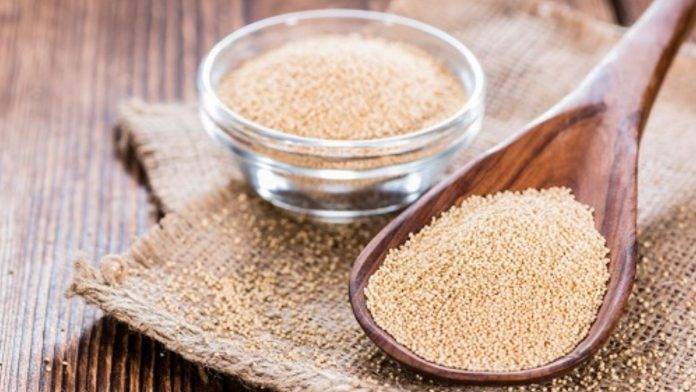Amaranth also has the meaning of immortality. The grain was widely used in ancient civilizations and has been cultivated for 8,000 years. It was a staple meal for the pre-Columbian Aztec civilization and was grown throughout South and Central America. The incredibly healthy grain is devoid of gluten and ideal for people with celiac disease. Since this grain is also regarded as satvik and vrat-friendly, it is consumed by many people during Navratri, which began today. Packed with of amino acids, amaranth is one of the highest protein-rich plant foods. For vegetarians, it is therefore a suggested diet to obtain their daily requirement of protein. The remarkable nutritional profile of amaranth has led to a rise in popularity in recent decades.
Advantages of amaranth
- Nutrient-rich: Protein, dietary fiber, calcium, iron, magnesium, phosphorus, and potassium can all be found in good amounts in amaranth.
- Gluten-free: Due to its inherent lack of gluten, amaranth is a good grain substitute for people who have celiac disease or gluten sensitivity.
- High protein content: It’s a good plant-based protein source because it has more protein than most grains.
- High in antioxidants: Amaranth is a good source of vitamins A and C, which can help shield cells from the harm that free radicals can do.
- Reduced risk of heart disease and cholesterol: Research indicates eating amaranth may help lower cholesterol levels.
- May facilitate digestion: Amaranth’s high fiber content might facilitate digestion and support a healthy digestive tract.
- Potential blood sugar regulation: Because amaranth has a low glycaemic index, it may be able to assist control blood sugar levels.

 हिंदी
हिंदी






